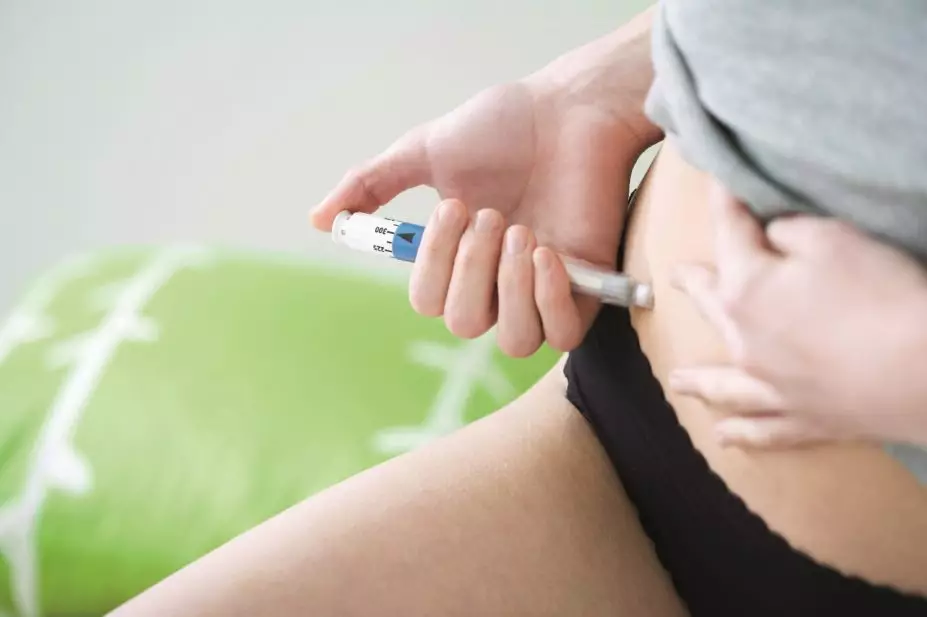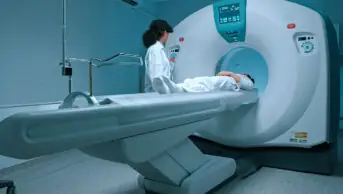
BSIP SA / Alamy Stock Photo
Researchers have found no increased risk of breast cancer among women who have undergone IVF, even after more than 20 years of follow up.
Led by Alexandra van den Belt-Dusebout from the Netherlands Cancer Institute in Amsterdam, the researchers analysed 19,158 women who began IVF treatment between 1983 and 1995 as well as 5,950 women who underwent alternative fertility treatments, such as low-dose ovarian stimulation, intrauterine insemination and clomiphene, between 1980 and 1995 in the Netherlands.
Publishing their findings in JAMA
[1]
(online, 19 July 2016), the researchers compared the cancer incidence within the cohort from 1989 to 2013 using data from the Netherlands Cancer Registry, which details cancer incidence in the general Dutch population.
Over a median follow-up of 21.1 years, there were 839 cases of invasive breast cancer and 109 cases of in situ breast cancer. The researchers also found that the risk of breast cancer in the IVF-treated group did not significantly differ when compared to either the non-IVF group or the incidence in the general Dutch population.
At the age of 55, the cumulative incidence of breast cancer was 3.0% in the IVF group and 2.9% in the non-IVF group. Within the IVF group, there was also no evidence of an increasing breast cancer risk with increasing time since treatment.
“These findings are consistent with the absence of a significant increase in long-term risk of breast cancer among IVF-treated women,” the researchers say.
A possible link between IVF and breast cancer risk has often been considered plausible because women are exposed to strongly elevated levels of oestrodiol and progesterone during the ovarian stimulation stage of the treatment. But levels of the hormones are also suppressed at other times in the treatment cycle and human chorionic gonadotopin is given near the time of oocyte retrieval, both of which might conversely be associated with a protective effect.
In this study, the researchers actually found a significantly lower risk of breast cancer among women who had undergone seven or more IVF cycles compared with women who underwent one or two (hazard ratio [HR]: 0.55). They also found a lower risk of breast cancer among women who had a poor response to the first IVF cycle (HR: 0.77; <4 vs ≥4 collected oocytes).
The researchers explain that data on the relationship between IVF and breast cancer risk have been scarce in the past because the procedure only became widespread in the late 1980s. But, given the numbers of women now undergoing ovarian stimulation for IVF, even a small increase in risk could have important public health consequences.
Some previous studies have found links between the procedure and breast cancer risk but they have typically had a relatively short follow-up period and have not compared women undergoing IVF with other sub-fertile groups.
As IVF treatment protocols have changed over time, the researchers say it is difficult to unravel the effects of the different phases and schedules, or to say how their findings might relate to present day IVF protocols, which typically involve shorter periods of hormonal down-regulation but have also resulted in women having fewer cycles due to improved success rates.
“Although IVF regimens changed after 1995, information about long-term cancer risk is important because many women received IVF treatment before 1995,” they say, adding that longer-term follow-up will be needed to evaluate the breast cancer risk in postmenopausal women who have previously undergone IVF, as only 14% of the study population were aged 60 or over.
Susan Seenan, chief executive of the patient fertility charity Infertility Network UK, says the findings would be welcome news to the approximately 50,000 women in the UK who undergo IVF or intracytoplasmic sperm injection (ICSI) each year.
“Approximately one in six couples in the UK need fertility treatment, such as IVF or ICSI, in order to become parents. The news from this large, long-term study that IVF is not associated with an increased risk of breast cancer will be a wonderful reassurance to them and their families,” she says.
“The struggle to have children and the process of IVF itself are both enormously distressing; knowing that women are not subjecting themselves to an increased risk of breast cancer as well will help alleviate some anxiety.”
References
[1] Van den Belt-Dusebout A, Spaan M, Lambalk CB, et al. Ovarian stimulation for in vitro fertilisation and long-term risk of breast cancer. JAMA 2016;316:300-312. doi: 10.1001/jama.2016.9289.


